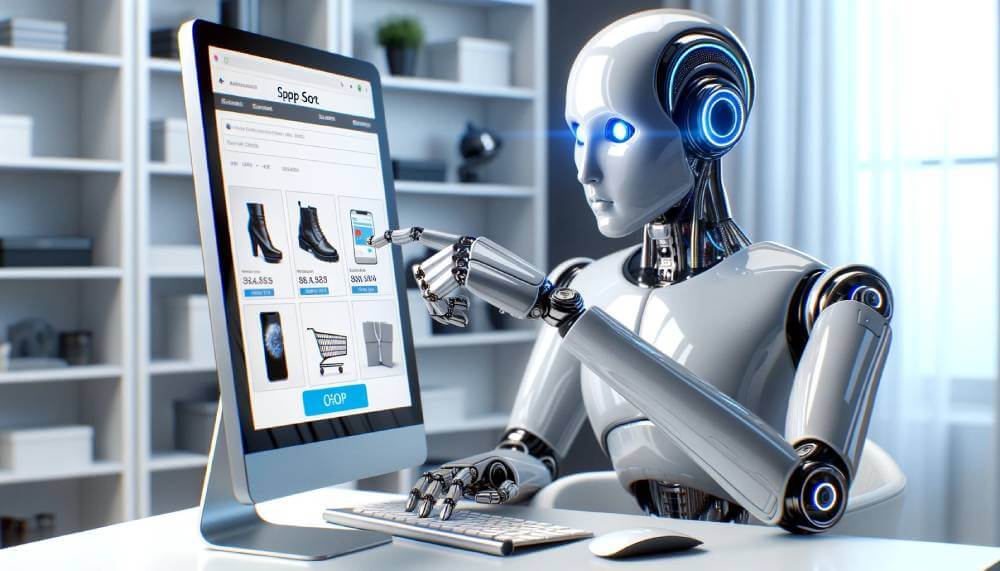Artificial Intelligence (AI) is revolutionizing various industries, and shopping is no exception. As AI technology advances, the retail sector is poised for significant transformation. From personalized recommendations to automated checkout systems, AI will change how consumers browse, buy, and interact with brands. This article explores the future of AI in shopping and how it will impact both online and offline retail experiences.
1. Personalized Shopping Experiences
One of the most significant advantages of AI in shopping is hyper-personalization. AI-driven recommendation engines analyze consumer behavior, purchase history, and preferences to suggest products tailored to individual tastes. In the future, AI may:
- Use advanced data analytics to predict customer needs before they even search for products.
- Provide real-time recommendations based on location, weather, and current trends.
- Offer virtual personal shoppers that interact with customers through chatbots or voice assistants, making shopping more convenient.
2. AI-Powered Virtual Try-Ons
Augmented Reality (AR) combined with AI will allow consumers to try on clothes, accessories, and even makeup virtually before making a purchase. Future AI-driven shopping experiences may include:
- Virtual dressing rooms where shoppers can see how clothing fits their body type.
- AI-assisted color and style recommendations for fashion and beauty products.
- Personalized size recommendations based on past purchases and AI-generated body measurements.
3. AI and Automated Checkout Systems
Long checkout lines may soon be a thing of the past. AI-driven automated checkout systems will make shopping faster and more seamless. Potential developments include:
- Smart shopping carts that automatically scan items as they are placed inside.
- AI-powered cashier-less stores, like Amazon Go, where sensors and cameras detect what customers take and charge them automatically.
- Biometric payment systems using facial recognition or voice authentication to complete transactions.
4. AI for Price Optimization and Dynamic Pricing
Retailers will use AI to optimize pricing strategies in real-time, based on factors like demand, competitor prices, and customer purchase patterns. This could lead to:
- Personalized discounts tailored to individual shopping behaviors.
- AI-driven flash sales that adjust based on inventory levels.
- Real-time price adjustments during peak shopping hours or special events.
5. AI in Customer Support and Assistance
AI-powered chatbots and virtual assistants are already being used for customer service, but future improvements will make them even more efficient. AI may:
- Offer human-like interactions using natural language processing (NLP).
- Predict customer issues before they arise and provide proactive solutions.
- Use voice AI to answer complex queries instantly, reducing wait times.
6. AI for Supply Chain and Inventory Management
Retailers will leverage AI to optimize inventory levels and ensure that popular products are always in stock. Future AI-driven supply chain improvements include:
- Predictive analytics to forecast demand accurately and prevent overstocking or understocking.
- AI-powered warehouse robots that autonomously manage inventory and fulfill orders.
- Real-time tracking and monitoring of product shipments for increased efficiency.
7. AI in Smart Shopping Assistants and IoT Devices
The Internet of Things (IoT) combined with AI will create intelligent shopping assistants that help customers make purchases more efficiently. Future applications may include:
- AI-powered smart mirrors in stores that recommend outfits based on body shape and fashion trends.
- AI-integrated smart refrigerators that suggest grocery lists based on what’s inside and expiration dates.
- Voice-controlled shopping assistants that allow users to order groceries or household items through smart home devices.
8. AI for Fraud Prevention and Enhanced Security
With online shopping continuing to grow, AI will play a crucial role in fraud detection and cybersecurity. Future advancements may include:
- AI-driven fraud detection algorithms that identify suspicious transactions instantly.
- Biometric authentication for secure online payments.
- AI-enhanced security measures to prevent counterfeit products from entering the market.
AI is set to revolutionize the shopping experience, making it more personalized, efficient, and secure. As AI technology continues to evolve, consumers can expect a future where shopping is smarter, more interactive, and tailored to individual needs. Whether through virtual try-ons, automated checkouts, or AI-driven recommendations, the future of AI in shopping will redefine the way we browse and buy products.

